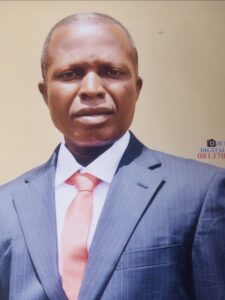BOKO HARAM & ALLOWING GUNS IN NIGERIA
By Alex O. Atawa-Akpodiete*
I have always been a proponent of the right of law abiding citizens to own guns, especially handguns (sometimes referred to as small arms). The desire by some people to own assault weapons is another matter. Even shotguns that are used for hunting have been condemned by some people. One of the annoying things in Nigeria is that armed robbers can operate in a whole neighborhood, going from house to house unchecked. If the residents had guns the armed robbers dare not do such a thing.
My religious friends will try and remind me that protection comes from God alone. That is true, but if stretched to the extreme, will make us irresponsible and not security conscious. I have actually lived in two places within four years where my neighbors were kidnapped, and I was not touched. You can humor me by saying the criminals knew my KV (kidnap value) was low.
Notwithstanding my pro-gun perspective, I have had a re-think in the last week. Maybe I am getting more conservative on the matter as I approach a half-century mark. I believe my views may be influenced by what has been happening in the last ten days in America, compared to Nigeria.
The Americans supported by the powerful national Rifle Association (NRA) hinge their belief on the right to own guns on the Second Amendment to the American Constitution, which was ratified on December 15, 1791. It states that “A well regulated Militia, being necessary to the security of a free State, the right of the people to keep and bear Arms, shall not be infringed.” Most of the constitutional arguments focus on the second portion tagged “Right to bear arms.
Can you imagine disorderly neighbors arguing in Nigeria? One will just pull out a gun. How about husband and wife arguing? Also, Oga will think seriously before he slaps the houseboy. What about road rage? Of course, the lecturer that is demanding sex from the university student may think twice. In fact, last week an American professor resigned because of a new Texas law that will soon allow students to bring guns on campuses.
In God’s own country, a student killed a fellow student and wounded three other students in northern Arizona State University (See Frederick News-Post, Saturday, October 15, 2015, p.A3). This is just as Americans were recovering from the shock of the killings in Oregon by a demented Community College Student with Asperger syndrome.
In a study on GUN VIOLENCE in the UNITED STATES by various agencies including the National Opinion Research Center (published by heedinggodscall.com), we learn that “ The US has an estimated 283 million guns in civilian hands; Each year about 4.5 million firearms, including approximately 2 million handguns, are sold in the United States; More than 30,000 people are killed by firearms each year in America; More than 30 people are shot and murdered each day; Homicide is the second leading cause of death among 15-24 year-olds.”
In terms of comparative annual gun homicides: Less than 50 in Japan; Less than 150 in Germany, Italy, France; Less than 200 in Canada; and More than 10,000 in USA according to IANSA (International Action Network on Small Arms of the United Nations).
In a ten day period, Boko haram terrorists have killed about thirty people in North Eastern Nigeria. With a population of about 160 million, we usually lose about 2,000 Nigerians to automobile accident annually. According to ConnectNigeria.com, the Federal Road Safety Corp (FRSC) issued the following Statistics, “1,936 persons lost their lives in 2012. It is a 12.7% reduction, from the 2,218 deaths that occurred at the same period in 2011. In 2010 there were 5,330 deaths and 18,095 injuries from accidents; in 2011, there were 4,065 deaths and 17,464 injuries. In 2009, 4,120 persons lost their lives, while 20, 975 people were injured, in accidents involving 11,031 vehicles. In 2008, 6,661 deaths occurred, and 27,980 injuries.”
The statistics on Boko Haram deaths are illuminating, although not officially maintained by the Nigerian government. However, a little international digging helps us. The Washington post revealed that “Boko Haram-related violence is the most lethal conflict that Nigeria has confronted in decades. Since 1998, at least 29,600 Nigerians have been killed in more than 2,300 incidents reflecting a wide range of ethnic, religious, political and economic tensions across large portions of the country. Since July 2009, when the Boko Haram conflict escalated, at least 11,100 people have died on all sides of the insurgency.”
Also, the Nigeria Social Violence Project, based in the African Studies Program at the Johns Hopkins University School of Advanced International Studies (SAIS), reported that “From January 1998 –December 2014, the dataset records 32,943 Deaths from various forms of social violence in Nigeria.” In 2014 alone, Boko haram was responsible for approximately 5,500 of the total 7,500 social deaths in the county. (Credit for the research goes to Peter Lewis, Nate Allen, Hilary Matfess, Nadia van de Walle and Cassady Walter). In another study, our research reveals that “Fighting associated with Boko Haram killed 6,347 civilians in 2014, said the Armed Conflict Location and Event Data Project (Acled).”
This past week, the world was also saddened by the bombing of protestors in the Capital of Turkey, again another act of one of two possible Islamic terrorist groups.
Whether the killings are by white American young men or young brainwashed Nigerian youths, it still comes down to mental illness. Most of these young men usually have no prior criminal record or reported involvement with religious extremism.
With the popularity of Social media and the stupendous availability of home videos, people have become anti-social today. It has become more difficult to diagnose or prevent the onset of mental disease or social dysfunction.
By allowing guns in Nigeria, we will be increasing the social violence in the country and adding to the deaths by Boko haram.
Atawa-Akpodiete, a public Affairs Analyst, can be reached on +12407724113, +2348138391661 or Profatawa@gmail.com




